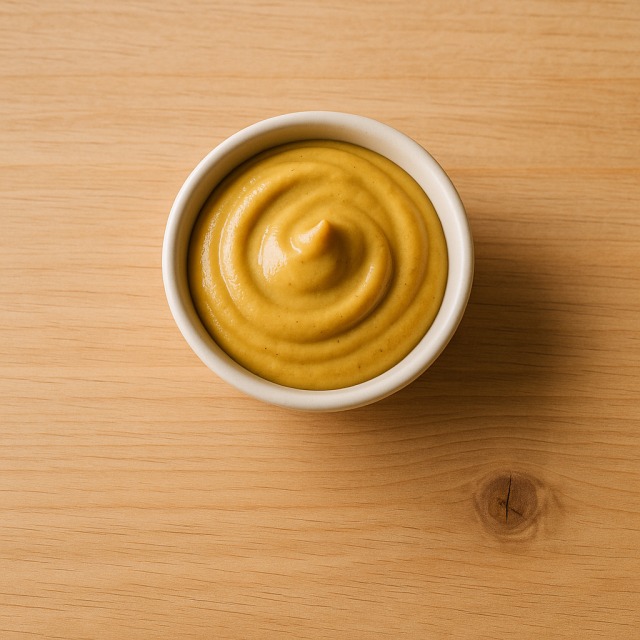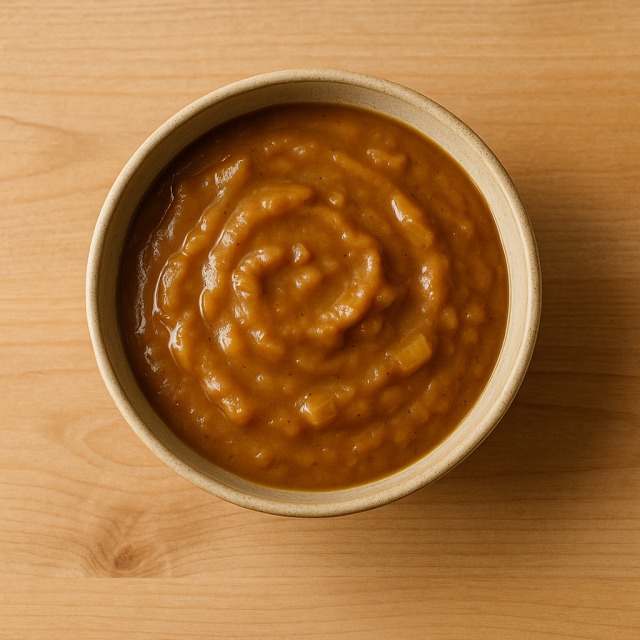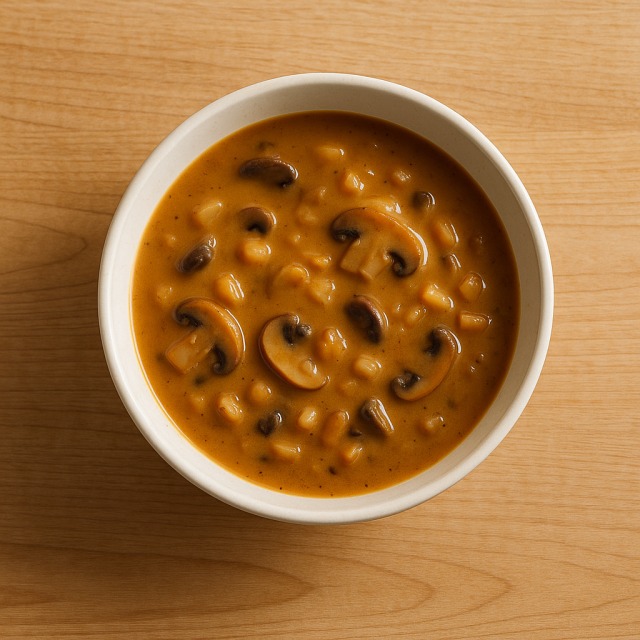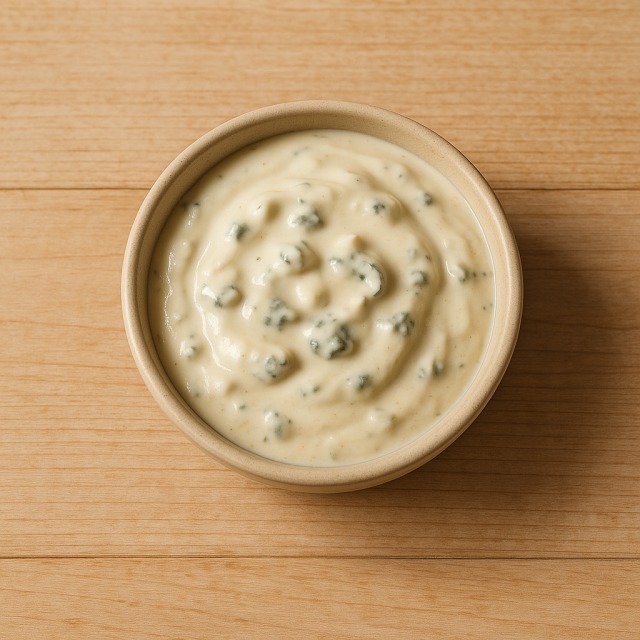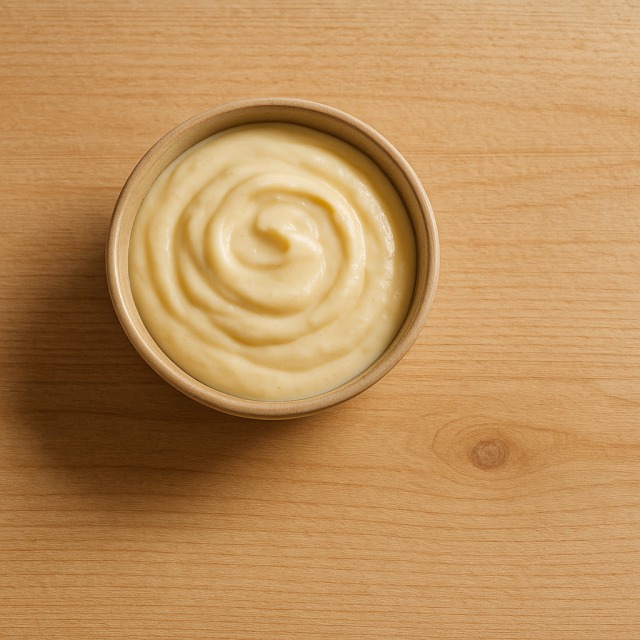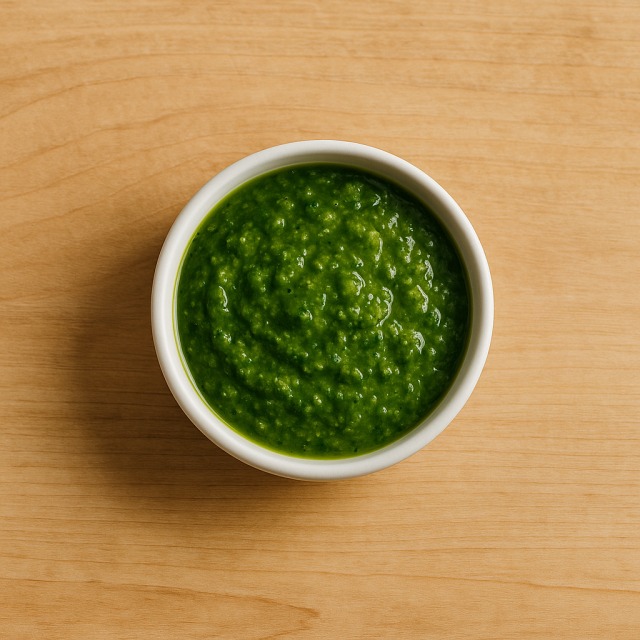Calorie Chart / Seasoning & Sauces / Tartar sauce
How Many Calories Are in Tartar sauce?
Calculation of the nutritional value & Recommended Dietary Intake of tartar sauce
For g and a calorie requirement of kcal
| Calories 69 kcal | Proteins 0.2 g | Lipids 7.1 g | Carbohydrates 1.4 g |
| 3% | 0% | 11% | 1% |
Health benefits of tartar sauce
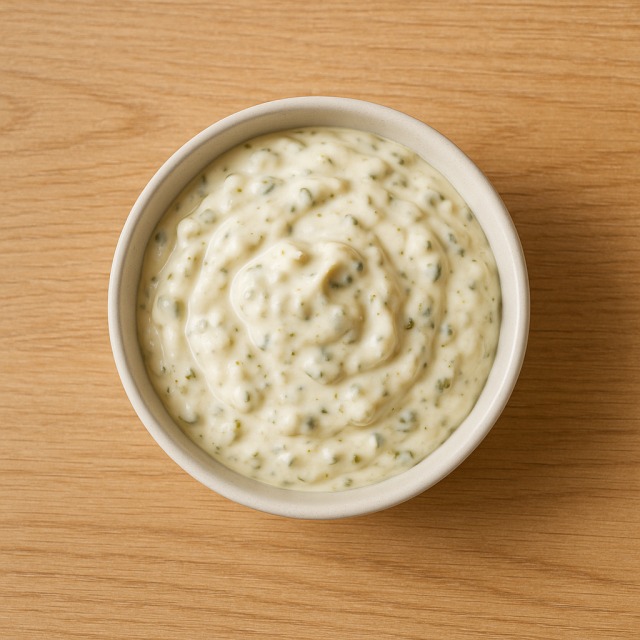
Tartar sauce - 100g
Calories 463 kcal
Proteins 1 g
Lipids 47 g
Carbohydrates 9 g
Tartar sauce is a high-calorie condiment (463 kcal/100 g) because it is traditionally prepared with oil-rich mayonnaise, giving it a dense supply of energy for anyone who needs extra calories in a small volume. Beyond calories, the vegetable oil base provides vitamin E, an antioxidant that helps protect cells from oxidative stress, and delivers unsaturated fatty acids that can support cardiovascular health when consumed in moderation.
The egg yolk used in its preparation contributes choline, which is essential for normal liver function and neurotransmission, while the pickles and capers add trace amounts of vitamin K and minerals such as sodium and potassium. Although tartar sauce is not a significant source of proteins or carbohydrates, its lipids help the body absorb fat-soluble vitamins (A, D, E and K) present in the rest of the meal. First served in French cuisine to accompany fried fish, this sauce owes its name to the "Steak Tartare" tradition from the early 20th century. In short, if you are looking for quick calories, tartar sauce offers a concentrated solution, but its richness means that calories can add up quickly.
Tips for incorporating tartar sauce into a balanced diet
Because tartar sauce is so dense in calories, portion control is key: one tablespoon (about 30 g) already delivers roughly 140 calories. To keep calories balanced, pair the sauce with lean proteins such as oven-baked cod or grilled shrimp and prawn, and add fibre-rich vegetables like steamed broccoli. This combination provides satiety without an excessive calorie load.
For a lighter homemade version that still satisfies the "tartar sauce calories" craving, replace half the mayonnaise base with plain yogurt or mix in a spoonful of light crème fraîche; you will cut calories while retaining creaminess. In a balanced fish-and-chips meal, swap deep-fried potatoes for oven-roasted potato wedges brushed with a minimal amount of oil to trim calories further.
Tartar sauce also brightens cold dishes: stir a small dollop into a tuna in water salad for extra flavour, or fold it into diced chickpea and cucumber for a quick high-protein, moderate-calorie lunch. When athletic goals call for extra calories after intense training, spreading tartar sauce on a whole-grain wholemeal bread sandwich with grilled chicken offers both energy and taste. Remember that calories accumulate stealthily with condiments, so taste first, then add more only if necessary.
Frequently Asked Questions
- How many calories are in tartar sauce?
- There are 463 kcal per 100 g.
- Is tartar sauce higher in calories than mayonnaise?
- Yes, traditional tartar sauce usually contains slightly more calories than basic mayonnaise because of the additional pickles, sugar, and sometimes extra oil; however, the difference is modest (about 10–20 kcal per 100 g).
- How can I reduce tartar sauce calories at home?
- Mix equal parts tartar sauce and plain light yogurt, add lemon juice and herbs; this can cut calories by up to 40% while keeping flavour.
- Is tartar sauce suitable for a weight-loss diet if I track calories strictly?
- Yes, but only in small servings. Limiting yourself to one teaspoon (≈ 50 calories) and pairing it with low-calorie foods like lettuce-based salads keeps daily calories under control.
- How do athletes use tartar sauce to add calories during bulking phases?
- They may spread a controlled amount on a grilled salmon sandwich or mix it into rice bowls to boost calories without increasing meal volume, ensuring adequate energy for muscle growth.
Similar foods
Information provided by Calorie Menu may contain inaccuracies or errors. It cannot, under any circumstances, substitute medical advice or medication.
